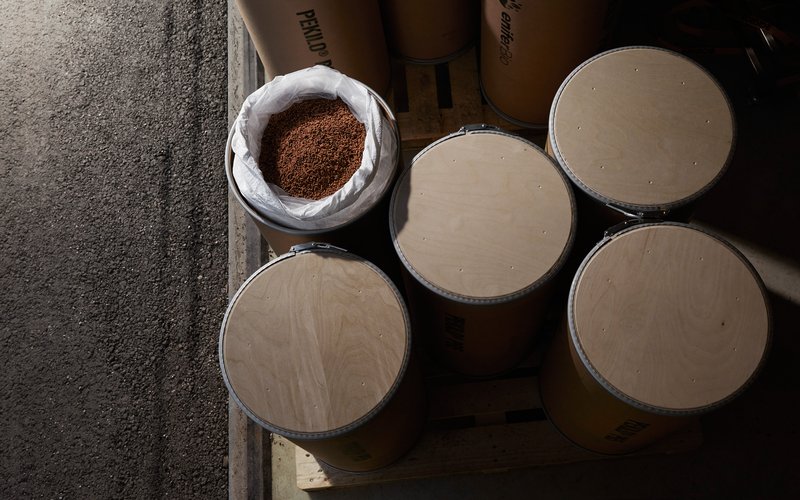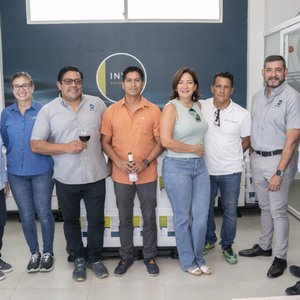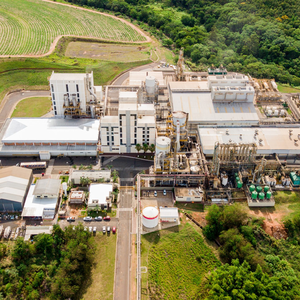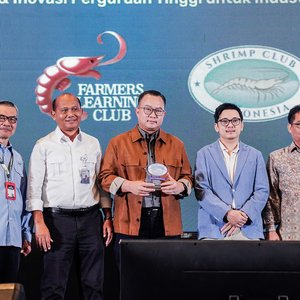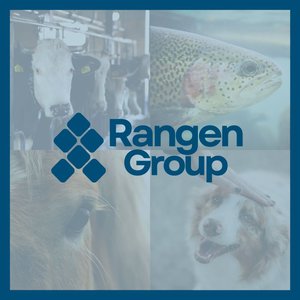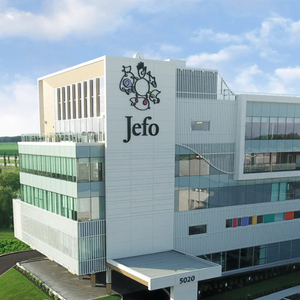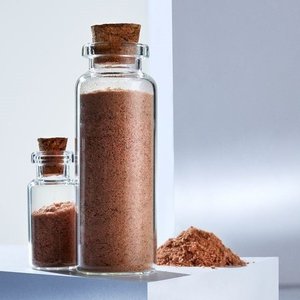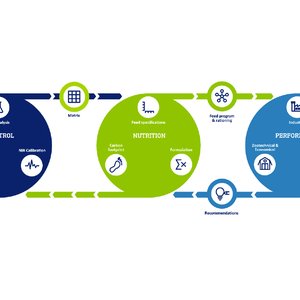Finnish biotech company Enifer has announced the first deployment of its proprietary PEKILO® fermentation technology in South America through a strategic partnership with FS, one of Brazil’s top ethanol producers.
The project marks a dual milestone: it is both the first time the technology is being used outside Europe and the first instance of using corn ethanol-derived side streams—specifically thin stillage—as feedstock to produce mycoprotein for aquafeed and pet nutrition.
FS is now working to construct an industrial process at a pilot scale for the Brazilian market after validating their thin stillage as a feedstock for PEKILO®Pet and PEKILO®Aqua mycoprotein production.
FS’s pilot project can produce approximately a combined 500 tonnes of PEKILO®Pet and PEKILO®Aqua annually. The fermentation process will be directly integrated with FS’s ethanol production, utilizing side streams from existing operations to maximize resource efficiency and advance circular economy principles.
A new feedstock
PEKILO®Pet and PEKILO®Aqua mycoproteins are nutrient-rich ingredients produced through a biomass fermentation process that utilizes a unique fungal strain, akin to the techniques employed in brewing or producing soy sauce. This process yields ingredients that are rich in protein (60%) and beta-glucan fiber, low in fat and carbohydrates, and highly palatable and digestible sources of complete protein.
FS ferments corn mash to produce ethanol. Once the ethanol is recovered via distillation, what remains is a liquid called stillage. “This stillage represents an excellent feedstock for producing PEKILO® protein. Our fungal fermentation can utilize diverse compounds in the stillage, such as residual sugar, glycerol, and organic acids, and convert these into our highly nutritious mycoprotein ingredient,” Enifer CEO and co-founder of Enifer, Simo Ellilä, told Aquafeed.com.
Byproducts from ethanol production are ideal in many ways – they are available in huge volumes year-round (not seasonal), therefore, big PEKILO® production plants can potentially be built, offering economies of scale. “Ethanol byproducts naturally contain nearly all the nutrients required for the growth of mycelium, so we need to add very little. These factors mean that integrating PEKILO® production at ethanol mills can make production particularly competitive. On the other hand, dilute liquid streams like thin stillage are difficult to valorize using other technologies, making it a good match for both parties,” Ellilä said.
In terms of composition, Enifer is able to adapt the PEKILO® process to yield a product that provides the same macronutrient composition independent of the feedstock, meaning that the same specified amounts of amino acids, fiber, etc., will be present. “In the case of DDG (Dried Distillers' Grains), it is the solid residue remaining after corn ethanol fermentation and mainly contains undigested parts of corn kernels and spent yeast. The protein content of DDGS is about half of PEKILO® (~30%), and it is therefore mainly used in bulk land animal feed. PEKILO®’s high content of digestible protein and health-promoting components such as beta-glucan make it an ideal ingredient in high-value applications in pet food and aquaculture.”
Beyond corn ethanol, byproducts from large-scale corn, wheat, rice, and sugar refineries, as well as from certain forest industry plants, can provide ideal feedstocks for producing PEKILO®Pet and PEKILO®Aqua mycoprotein ingredients. “Food grade byproducts from the food industry (such as starch or dairy) offer a great feedstock for making food grade PEKILO® protein,” Ellilä added.
A Latin American first
To enable the scale-up of the production, FS has approved the project under the Mais Inovação Brasil program, which supports innovation through public funding and subsidies. The initiative will receive BRL 9.8 million (USD .7 million) in funding from FINEP (Financiadora de Estudos e Projetos), the Brazilian innovation agency. The product will be marketed to the animal nutrition industry in Brazil as well as other countries, such as Ecuador and Chile, which are major producers of shrimp and salmon, respectively.
“With this funding, we will advance key stages related to fungal fermentation, enabling us to move toward industrial production. We will now implement our pilot plant, learn how to scale its operation, and test the market with high-performance functional solutions for animal nutrition,” said Daniel Lopes, VP of Sustainability and Business Development at FS.
Once operational, the industrial plant could reach a production capacity of 10,000 tonnes annually, making it a significant new source of sustainable protein in Latin America.
Currently, FS uses thin stillage to produce DDG (Dried Distillers Grains) for animal feed. By applying the PEKILO® process, the resulting mycoprotein is particularly well-suited for use in pet food and aquaculture, where the demand for sustainable, traceable, and high-quality protein sources is increasing.
“Transferring this process across the Atlantic to a new continent and using a new agricultural side stream is a significant validation of the flexibility and robustness of the PEKILO® fermentation technology,” said Ellilä. “It shows that PEKILO® can deliver consistent performance from a wide variety of raw materials and in very different industrial settings.”
“This project reinforces our commitment to innovation, science, and sustainability. We are adding extra value to second-crop corn by developing a relevant and innovative solution for animal nutrition, using a pre-existing raw material without compromising DDG production. This is a significant technological advancement for the sector,” said Rafael Abud, CEO at FS.
Looking ahead
The Brazilian initiative is part of Enifer’s broader scale-up trajectory. In Finland, the company is finalizing the construction of its first full-scale PEKILO® production facility, backed by EUR 33 million in funding and designed to produce up to 3,000 tons of high-quality mycoprotein ingredients annually.
With operations now underway in both hemispheres, the PEKILO® process has been proven to function across a wide range of raw materials, climates, and industrial infrastructures. “We are working with partners such as FS to significantly expand the production of PEKILO® protein ingredients going forward. We expect to make an investment decision in a larger (10 kiloton or more) plant by the end of 2026, and are looking at several potential sites for future plants,” Ellilä concluded.


